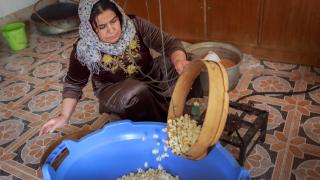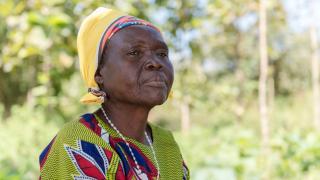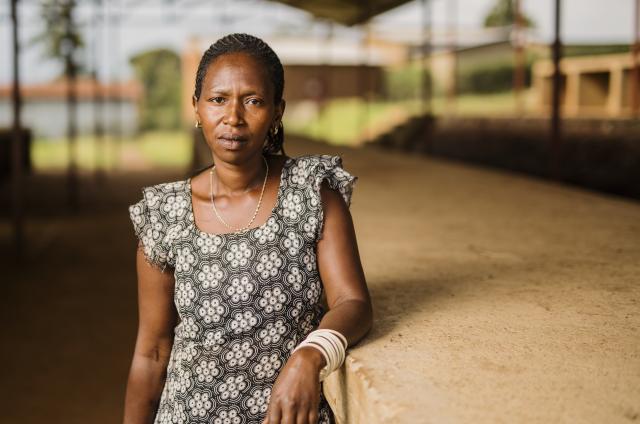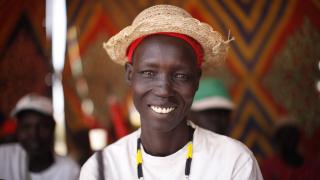How the War in Ukraine is Affecting World Hunger
Conflict is the greatest cause of hunger around the world.
Today, 60% of the world’s hungry people live in areas affected by war and violence (source: World Food Programme) and as the war in Ukraine causes people to flee their homes and strips them of their livelihoods, people struggle to access food for themselves and their families.
But it is not only people in or fleeing Ukraine who are affected - we must not forget about those further away from Ukraine who are also being impacted by the war.
From Afghanistan to South Sudan, Iraq and elsewhere, people's lives are being impacted by the effects of Russia’s invasion. Even before the war, world hunger was rising, especially as a result of the pandemic. Now, the war has intensified food price inflation and it is impacting some of world’s poorest and most vulnerable countries the most.

Debt in Afghanistan
In Afghanistan, over 80% of people are in debt because they have had to borrow money to pay for food.
The war in Ukraine is compounding the effects of the pandemic, drought and the economic crisis that has been unfolding since the de facto government took control of the country in August 2021.
(Source: NPR)

Food Prices in Iraq
The cost of food in Iraq doubled between Russia's invasion and the end of March.
Iraq imports half of its food but supply disruptions caused by the war in Ukraine have led to a massive increase in prices, especially for cooking oil. The government has provided a monthly allowance to those who are particularly financially vulnerable and they are subsiding wheat and cooking oil - but still, the economic pressures have led to protests in southern Iraq.
(Source: Middle East Institute)

Shortages in South Sudan
In South Sudan, at least 7.2 million people are predicted to face acute food shortages this year.
8.9 million people in South Sudan are in need of humanitarian assistance right now, the highest number to-date. Of those, it has been estimated that 7.74 million people will experience severe levels of acute food insecurity between April and July - 63% of the population.
(Source: UN)

Wheat Costs Rising
Russia and Ukraine provide 90% of wheat imports in Somalia, 80% in the Democratic Republic of Congo, around 40% of Yemen's and Ethiopia’s, and much of Afghanistan’s too.
Prices in Kabul's bazaars are rising, with Afghan traders commenting that the cost of wheat went up by 20% after Russia’s invasion. For countries already at risk of famine, the effects that the war in Ukraine is having on global food prices are critical.
(Sources: The Conversation and NPR)
Around the world, millions of people are on the brink of starvation as food prices soar to record levels.
As Russia's invasion of Ukraine threatens global food security, the international community must act now to avert the largest food crisis in history.
KEEP READING
Iliriana Jaka Gashi, Director of Kosova – Women 4 Women, spoke to Gazeta Infokus about our work supporting women in Kosovo.
Globally, femicide is the leading cause of premature deaths of women. Audrey Mugeni, a member of our global Women for Women International global team, shares her expertise on the issue - which affects women in conflict and fragile states more than anywhere else in the world.
Have you ever been inspired to fundraise for Women for Women International, but felt daunted by the prospect of having to raise the funds? You're not alone.




